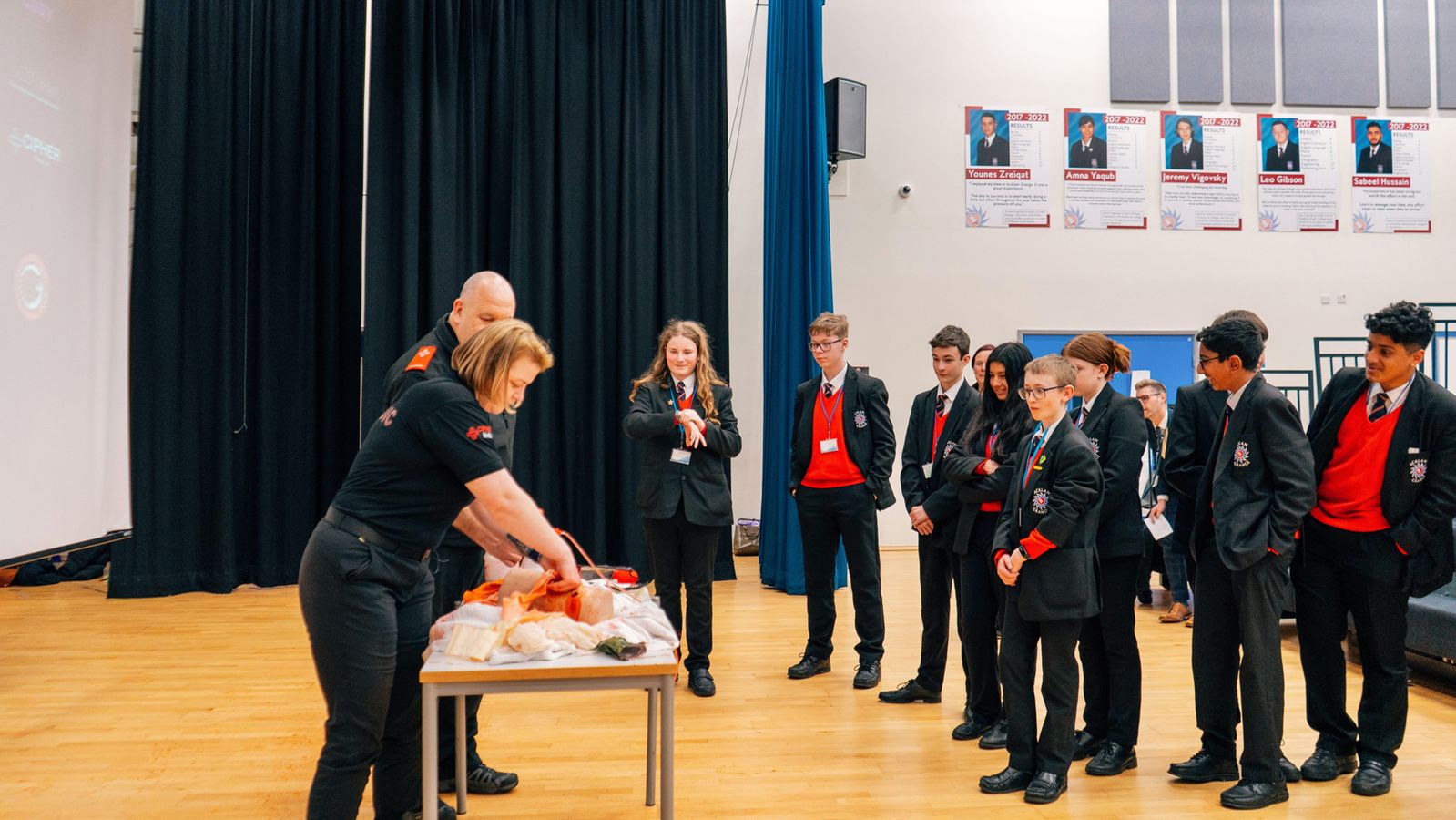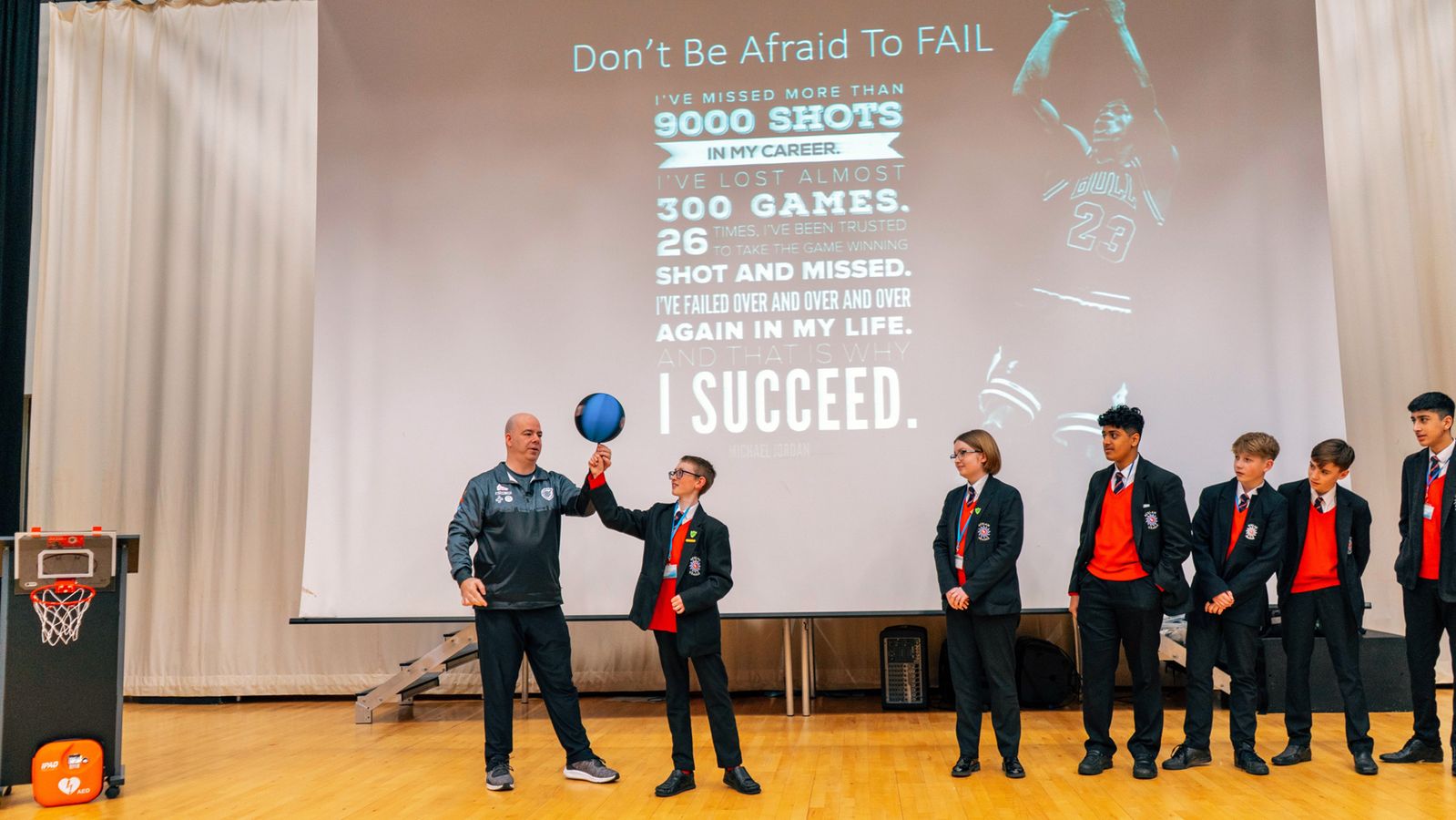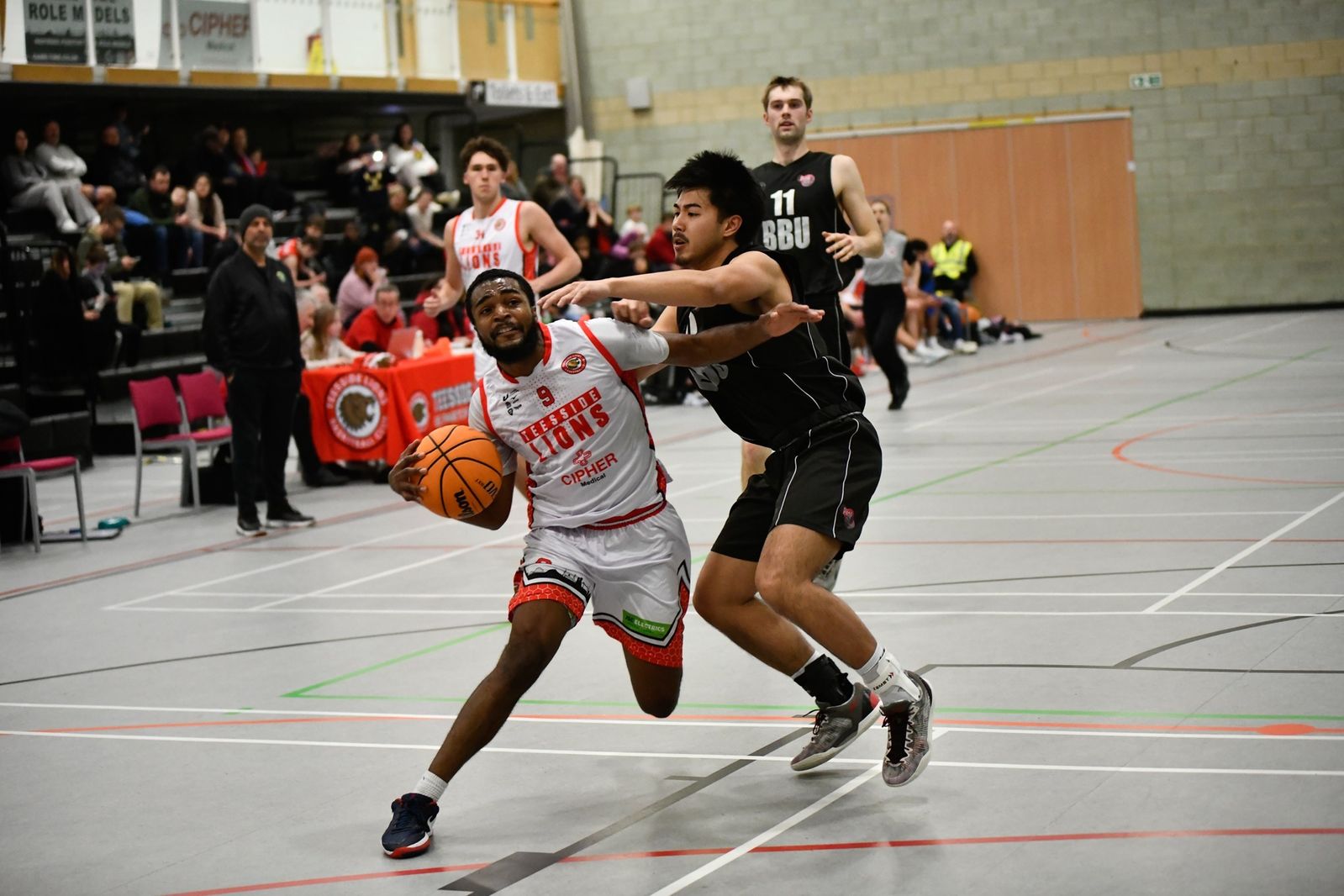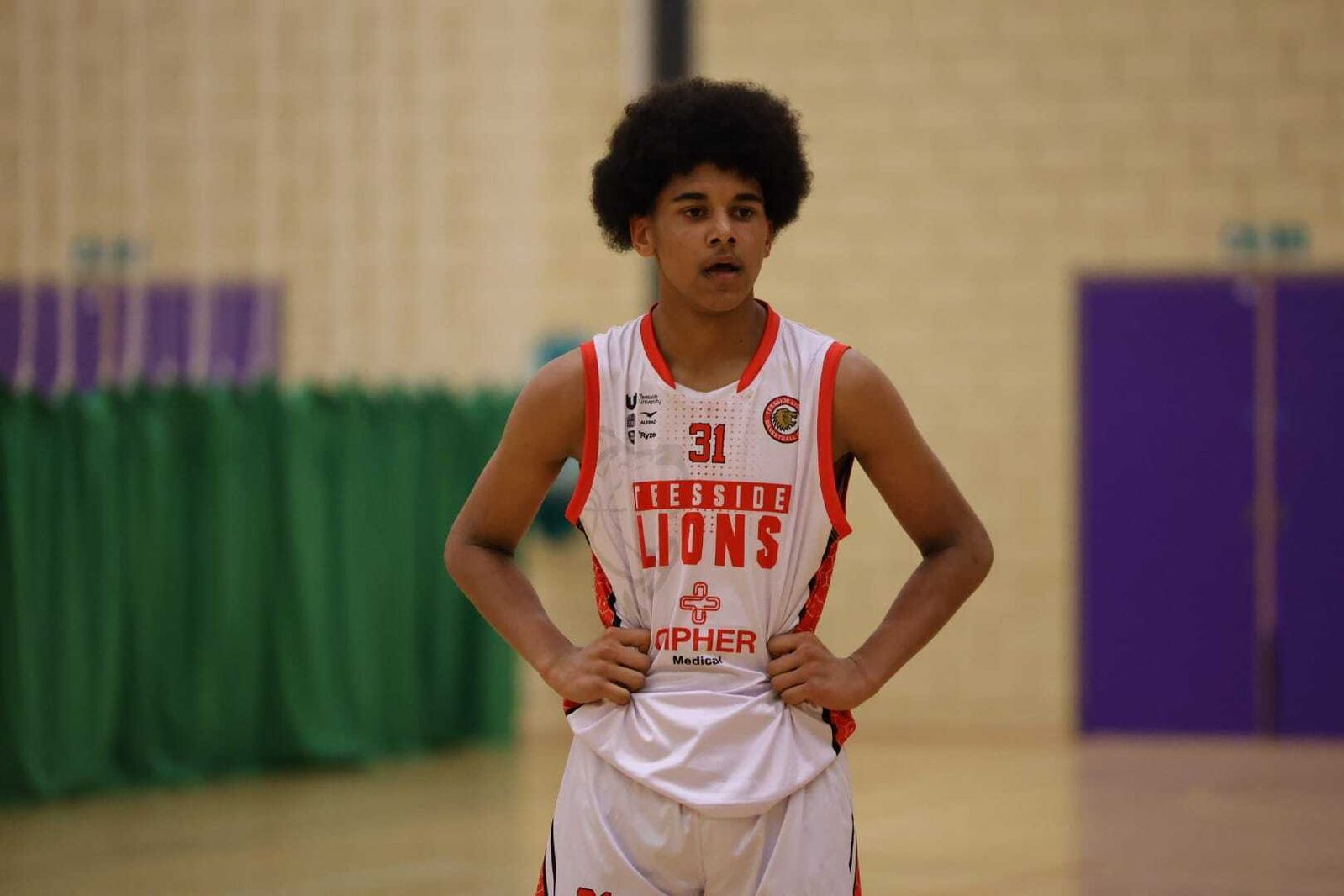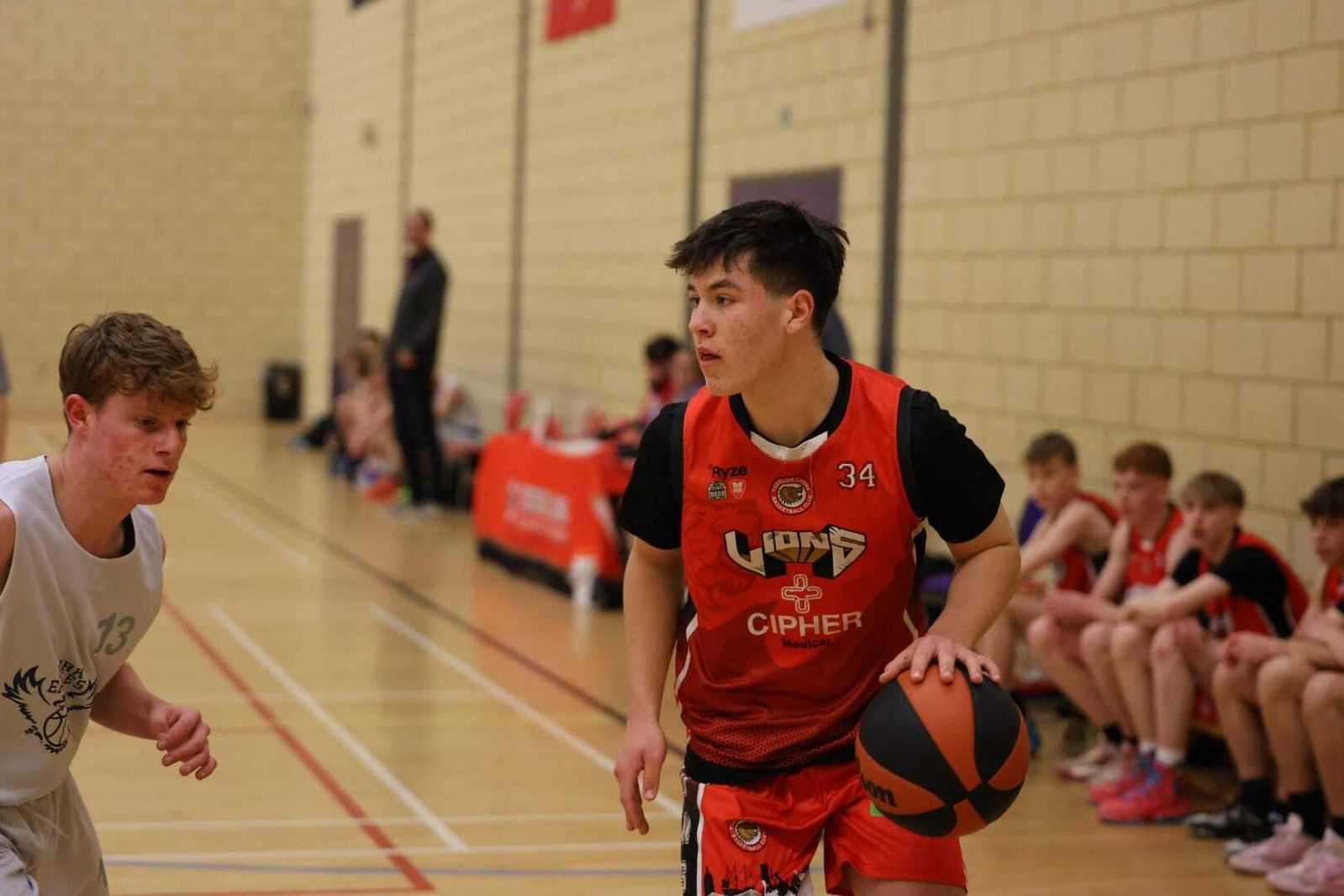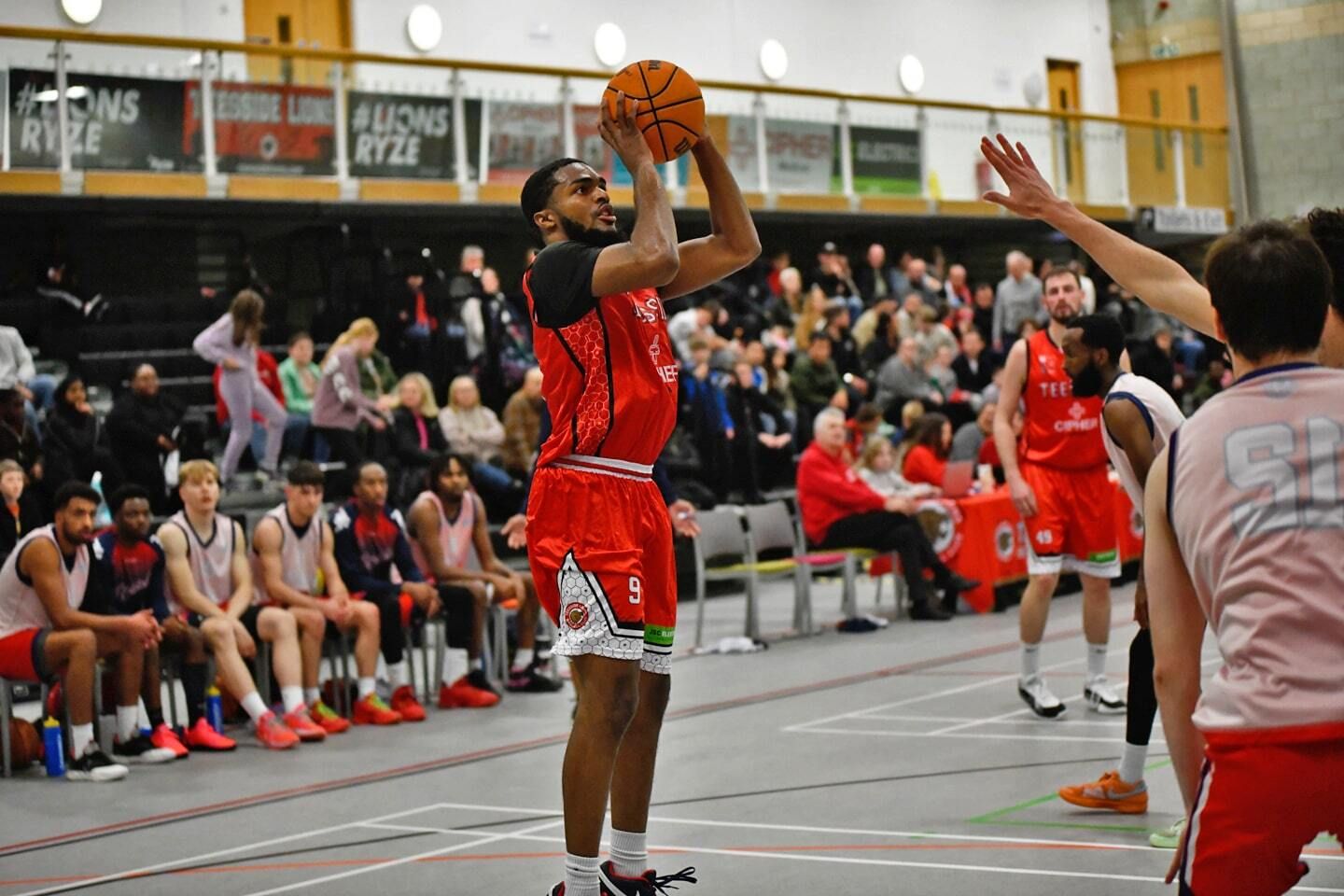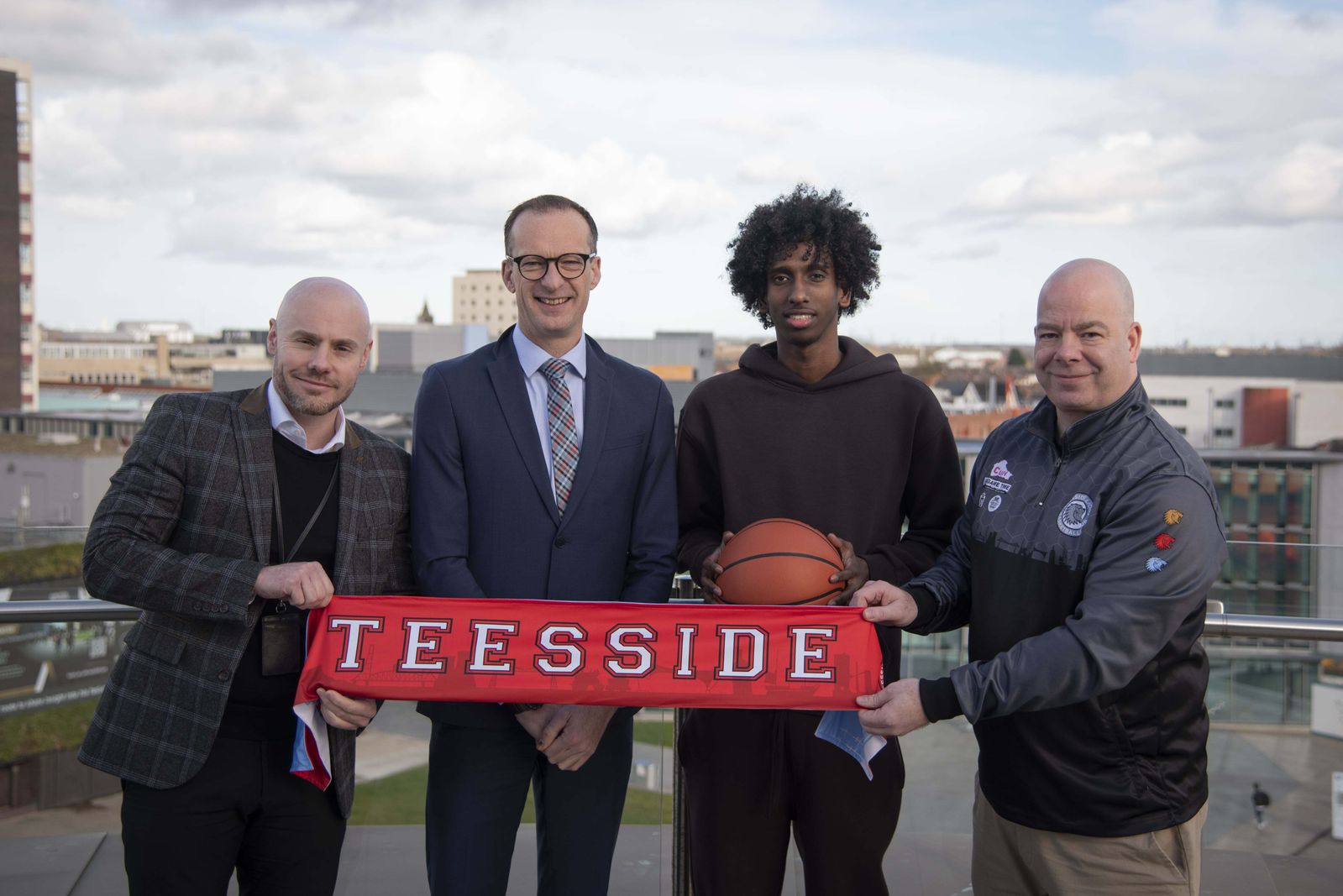Teesside Lions & CIPHER Medical have teamed up to deliver a campaign aimed at informing young people about the dangers of knife crime via the Role Models project.
Role Models is a CURV-funded early intervention crime reduction initiative using sporting role models from Teesside Lions basketball club.
The CURV-funded project aims to show school children the shocking consequences of carrying a knife.
10,000 Drop The Knife leaflets will be distributed around the area and feature professional coaches urging people to ‘Take 5, Not a Life, Drop The Knife’
The campaign urges the use of basketball stress balls and three professional coaches in James Thomson, Argentinean Cacu Amenanno and Oliver Hylands have also agreed to adopt the Take 5 principle when in stressful coaching situations.
Role Models has been funded with £30,000 from Cleveland Violence Reduction Partnership CURV, which sits within the Office of the Police and Crime Commissioner for Cleveland.
The first part of the Drop the Knife campaign talk is a half hour-long presentation to approximately 300 year 9 children at Acklam Grange school in Middlesbrough.
It includes a talk about focal points of Positivity, Failing and Resilience along with some demonstrations of tricks such as spinning the ball on a finger and juggling. The talk also featured an interview with 7 foot Lions captain Theo Turner and American Aaren Smith.
The talk alerts the dangers of carrying knives but also promotes how Teesside Lions, Role Models and the sport of basketball can provide a positive direction for young people.
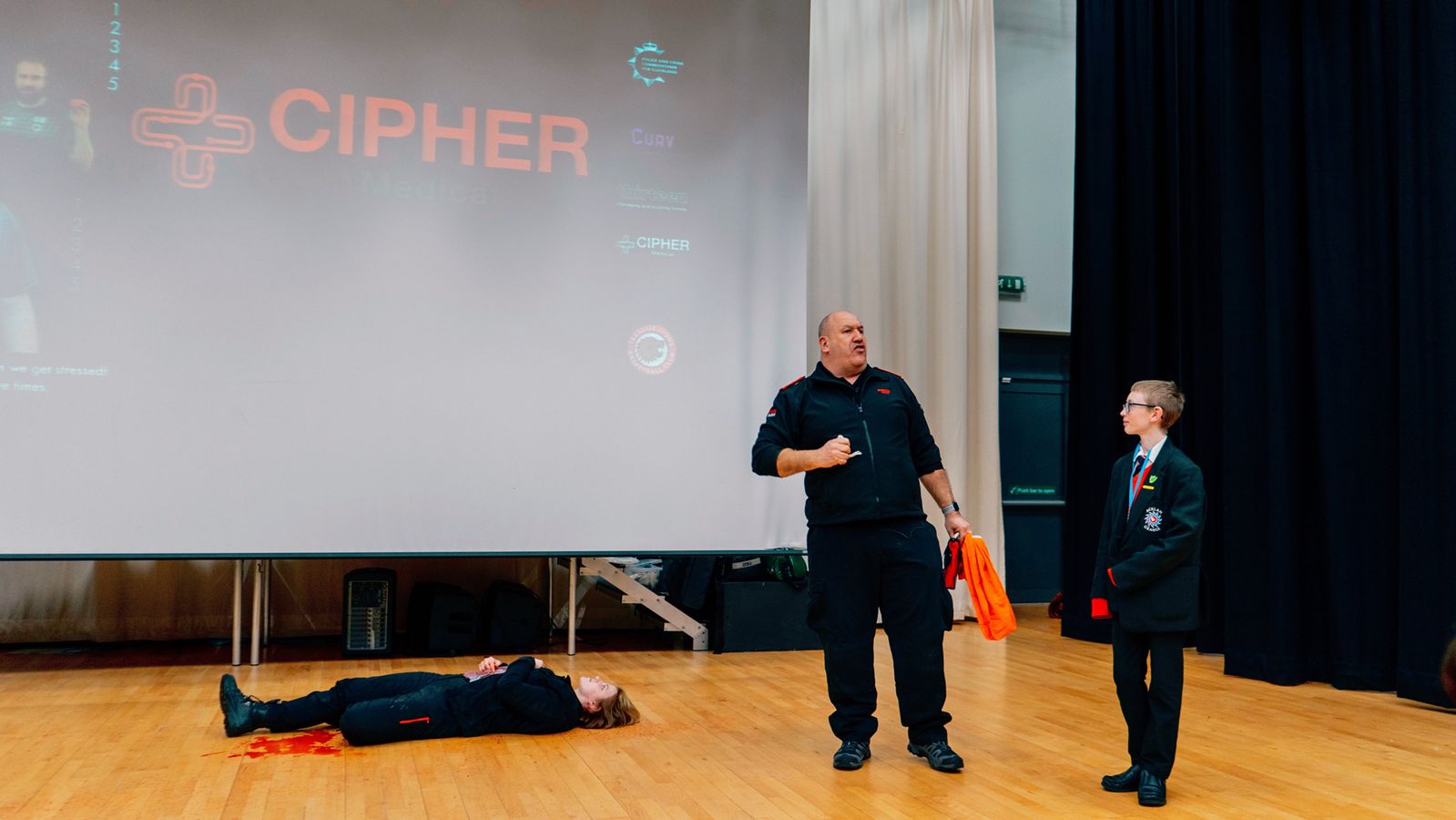
The second part features a lifelike simulation of a real stabbing. Paramedics from Stockton based CIPHER Medical talk through what is happening and show how to treat a knife wound. The re-enactment is so realistic that it even includes blood spraying from the wound.
The aim is to show the true consequences of knife related crimes, as well as to teach young people how to treat a wound if they come across a violent incident.
The ultimate goal is to shock young people away from carrying knives, but also provide them with knowledge and insight into what to do until paramedics arrive.
CIPHER medical are a sponsor of Teesside Lions and an example of multi-agency partners working together to promote a safer community.
The Head of CURV, John Holden said: “This campaign shows the positive benefits of sport while simultaneously highlighting the negative consequences of being drawn into violence and crime.”
The programme, which currently runs in Hemlington and West Middlesbrough, aims to reduce crime and improve community relations by providing positive sporting role models in the community.
Role Models works on the principle that too many young people do not have positive role models in their lives.
By providing surrogate role models, Teesside Lions believes it can influence positive choices and steer young people away from serious violence and crime.
Surrogate role models are drawn from the team’s coaches and professional players including some from overseas.
They engage with young people in a number of ways including school and community basketball sessions.
Sessions are themed around topics like positivity, failure, resilience, respect, teamwork, antisocial behaviour and even altruism.
Community engagement work includes walk about and youth support engagement on the street.
James Thomson, Chairman and basketball coach at Teesside Lions, and architect of the Role Models project said “Drop The Knife is another key component of the Role Models project that aims to provide a multi-dimensional approach to early intervention crime prevention.
“Sport is a great motivating tool and we are achieving success in building community relations, and encouraging kids off the streets and into basketball sessions.
“We have seen many families attend the basketball games at our 1200 capacity home at Eston Arena. This is particularly pleasing as it encourages family time together whilst watching a professional basketball game.
“Drop The Knife is a more direct message and we are hoping our influence will engage with young people who may have once considered carrying a knife.
“School engagement is key, especially in our ability to connect with young people and deter them from a potential life of crime before it happens.
“If we can engage with young people, who may be on the periphery of criminal activity or antisocial behaviour, we are confident we can influence many of them to follow a more positive path, help change lives, and save money for organisations such as the police and public health in terms of the lowered cost of crime that would follow in the medium to long term.”
